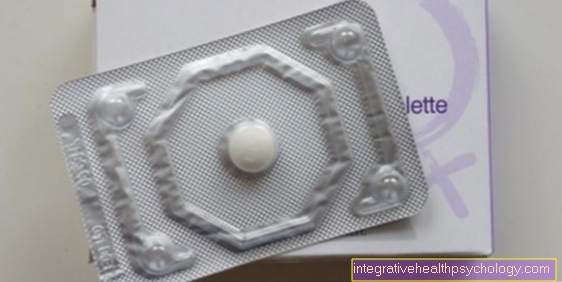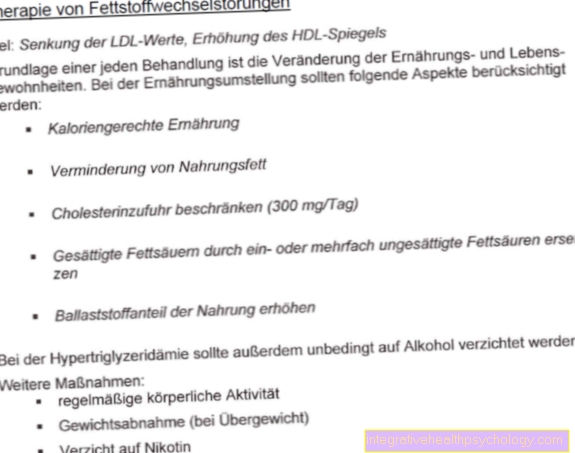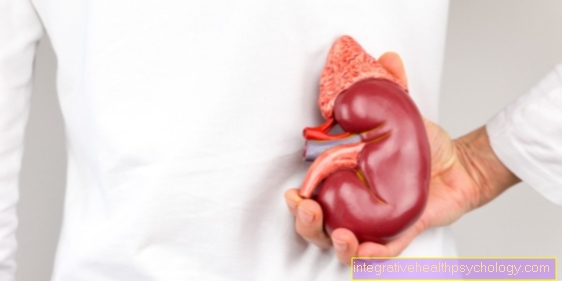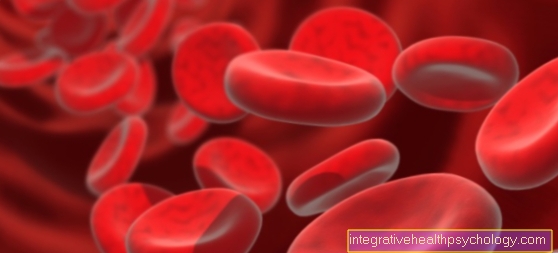Potassium iodatum
German term
Potassium iodide
Use of potassium iodatum for the following diseases in homeopathy
- asthma
- arteriosclerosis
- fear

Use of potassium iodatum for the following complaints
- Chronic bronchitis with a stubborn cough
- Runny nose
- Emaciation despite cravings
- Palpitations
- fast pulse
- Tremble
- Goiter formation
- Inner unrest
- Urge to move
- Mentally lively, but erratic and forgetful, nervous, irritable.
- Constant heat and fever feeling
- Swelling of the glands
- Worsening of the symptoms from wet and cold and when lying on the sick side.
Potassium iodatum for mental disorders
The teaching of Dr. Schüssler assumes that certain behavior patterns and compulsive character traits result in an increased consumption of certain salts. A deficiency in a certain salt can indicate certain psychological or character difficulties for an experienced therapist.
According to this teaching, a deficiency of potassium iodatum can occur especially in people who have an excessive sense of duty and thus appear cramped and stiff. Because of the feeling of wanting to please everyone and at the same time not meeting their own high, self-imposed standards, such people are quickly frustrated and have depressive tendencies. It is not uncommon for them to cry quickly. Moodiness and aggression can also express themselves.
A dose of potassium jodatum can then replenish the body's own stores of this salt and alleviate the suffering of the person concerned. However, these behaviors must also be worked on in order to remedy the cause of the deficiency symptoms.
Are you interested in this topic? Read our next article on this below: Homeopathy for Depression
Effect of potassium iodatum
The Schüssler salt No. 15, Kalium iodatum, consists of potassium, a substance found in relatively high concentrations throughout the body, and iodine. Iodine is mainly stored in the thyroid gland and is essential for its function. The thyroid has a major influence on the metabolism in the body.
An underactive thyroid can manifest itself through weight gain, loss of appetite, tiredness, frequent freezing and low blood pressure, but also through thin, brittle hair and brittle nails.
An overactive thyroid shows up in opposite symptoms such as inexplicable weight loss, increased sweating, restlessness, sometimes noticeably high blood pressure and a fast heartbeat.
As a Schüssler salt, potassium iodatum is mostly used to regulate the thyroid function, often as a supplement to the drug therapy prescribed by the doctor. In general, it should have a regulating and balancing effect on the body's metabolic processes. In addition, it is said to have an analgesic and anti-inflammatory effect, which this salt mainly develops in connective tissue structures such as muscles, tendons, skin and mucous membranes.
This results in a further field of application for the treatment of inflammatory diseases of the skin, mucous membranes, tendons or joints. Since potassium iodatum is a so-called supplementary salt, it is known to have a good effect with one of the functional salts or to supplement and strengthen the effect of one.
You may find the next topic helpful: Treatment of an underactive thyroid
Active organs
- Central nervesystem
- Mucous membranes of the upper respiratory tract
- Lymph glands
- thyroid
Usual dosage
application:
- Tablets (drops) Kalium iodatum D2, D3, D4, D6, D12
- Ampoules of potassium iodatum D4, D6, D12
Potassium iodatum globules
A common form of administration for homeopathic single remedies are globules, small spheres made from lactose onto which the heavily diluted stock substance - in this case potassium iodatum - has been dropped. An internal application with this Schüssler salt can also be carried out with globules.
The indications for such a therapy do not differ significantly from those of other dosage forms.
There are different recommendations for dosage, which not least depend on the type, duration and intensity of the symptoms.The potencies D6 and D12 are usually mentioned as suitable doses for self-treatment. Three to five globules of this can be taken two to three times a day.
In the case of severe or acute symptoms, the intake can also be increased for a short time. However, if the symptoms do not improve in the foreseeable future, they should be clarified medically.























.jpg)





